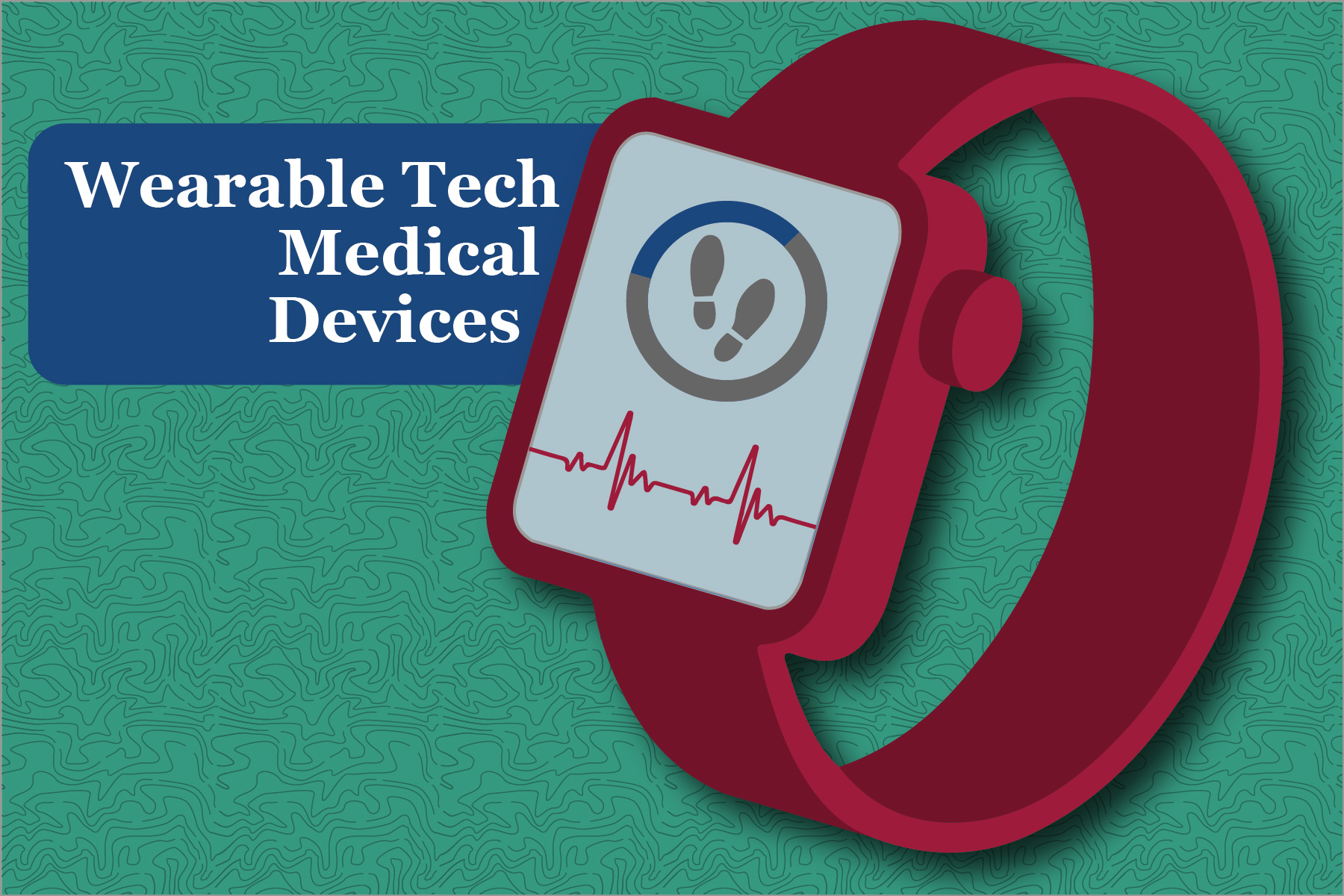Built and powered by data-intensive platforms such as Human-Computer Interaction (HCI), AI, Cloud Computing, Big Data, and the Internet of Things (IoT), wearable technologies are gaining more significance and popularity. The best example of a wearable smart device is a smartwatch. The sole function of such smart wearable devices is to continuously monitor and collect data, and trigger the “sync” which is the process of sending collected data to servers for future analysis. These software and hardware integrated devices may be utilized for certain monitoring purposes such as heartbeat or glucose level monitoring which makes them a medical device and therefore, such devices should be thoroughly tested for ensuring quality and safety. In short, these devices should be FDA compliant.
A key advantage of wearing these smart devices is that these devices provide continuous monitoring which assists in an early medical condition diagnosis. Decisions such as customized patient health plans or dynamic notifications can be pushed to patient devices like cell phones or tablets using data analytics on collected data. AliverCor’s Personal EKG (Electrocardiogram) is an AI-based machine which monitors heartbeat and can be carried in a pocket. Just by placing thumbs on the device sensors results in providing the status of heart condition along with any potential serious heart conditions. TempTraq is a patch-based thermometer which can be applied like a band-aid under children’s arm. The patch sensor keeps sending the temperature to a server which is further showcased on a mobile app. Blinq, a wearable smart ring provides fitness tracking options and an SOS feature which gets posted on social apps like Facebook in times of emergencies. Omron’s Blood Pressure Monitoring watch provides both systolic and diastolic blood pressure readings. Lastly, with the current ongoing pandemic of COVID-19, Philips Medical Systems developed the Biosensor BX100 which is a wearable patch. It monitors the health status of COVID-19 diagnosed patients and assists clinicians in identifying risks to help them take proactive clinical actions. 1 All the mentioned wearable devices were found to be substantially equivalent and were cleared through the FDA’s 501(k).
The wearable smart devices may be used as a fashion choice, but they should meet all the FDA’s respective quality and safety guidelines. When it comes to hardware, a major emphasis should be given to risk assessment documentation which captures the possible hardware hazards. Considering software, manufacturers should use the latest firmware and algorithms to construct their software. This check is performed to validate if the software is secured as it may use components like NFC (Near Field Communication) or Bluetooth. Both hardware and software should be sufficiently documented. Additionally, every medical device should undergo Validation which potentially includes clinical trials. These trials point out to potential future hazards and must be remediated by the device manufacturers. Such regulatory guidelines ensure that these wearable smart devices are safe, efficient, and based on the risk categorization class, they may be approved through the FDA pathways such as the De Novo or 510(k).2
To sum up, wearable tech-based devices provide continuous monitoring and offer decisions based on analytics on the collected data. This functionality adds to the patient quality care as it may facilitate diagnosis and even prevention of an underlying condition or a disease. Also, being a medical device, the manufacturers of these wearable devices must follow FDA regulatory guidelines before they market their devices for commercial or industrial use which includes sufficiently documenting and testing the device to attain the highest levels of security, safety, efficacy, and quality. Do you have a wearable smart device based on AI, IoT, or Cloud that needs FDA approval? Our regulatory and software experts at EMMA International can help ensure your system is FDA compliant. Contact us at 248-987-4497 or info@emmainternational.com for additional information.
1Alicia Phaneuf (January 2020). Latest Trends in Medical Monitoring Devices and Wearable Health Technology. Retrieved on November 3rd, 2020 from https://www.businessinsider.com/wearable-technology-healthcare-medical-devices.
2Becca Caddy (September 2019). Wearable tech and regulation: What laws do wearables need to follow? Retrieved on November 4th, 2020 from https://www.businessinsider.com/wearable-technology-healthcare-medical-devices.





